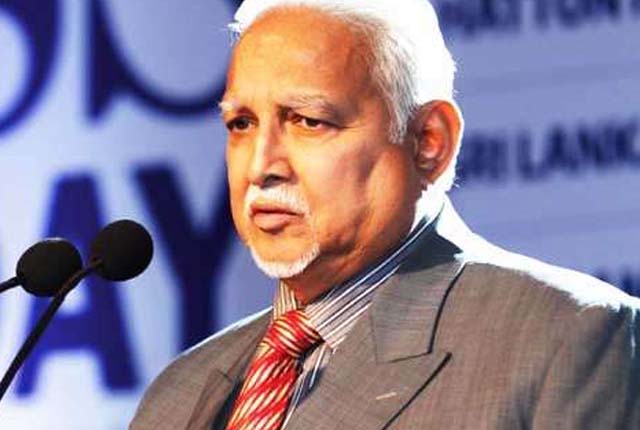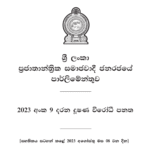1. Introduction The Milford case is a legal dispute adjudicated in the Supreme Court of Sri Lanka, involving the shareholders and directors of Milford Exports (Ceylon) Ltd. The case primarily concerns allegations of corporate mismanagement, shareholder oppression, and procedural issues under the Companies Act No. 7 of 2007. This report comprehensively analyzes the case, its legal foundations, arguments presented by both parties, and the Supreme Court’s ruling. It also examines the broader implications for corporate governance and legal compliance in Sri Lanka.
2. Case Details
- Case Name: Milford Exports (Ceylon) Ltd. v. R.K. Obeyesekere and Others
- Court: Supreme Court of Sri Lanka
- Case Numbers: SC(CHC) Appeal No 21/2009, HC(Civil) No 28/2008, SC(CHC) Appeal No 22/2009, HC(Civil) No 30/2008, SC(CHC) Appeal No 23/2009, HC(Civil) No 28/2008
- Judges: J.A.N. de Silva CJ, G. Amaratunga J, S. Marsoof J
- Date of Judgment: March 21, 2011
- Legal Basis: Companies Act No. 7 of 2007, Civil Procedure Code
- Key Issue: Shareholder oppression and procedural disputes concerning substitution of a deceased petitioner
3. Background of the Case The dispute arose between the petitioners—R.K. Obeyesekere, Zaki Alif, and Dr. V.P. Vittachchi—and the respondents—Milford Exports (Ceylon) Ltd., D.H.S. Jayawardene, Mrs. Sonia Weinman, and Secretaries & Registrars Limited. The petitioners, who were significant shareholders of Milford Exports, filed actions under Section 226 of the Companies Act, alleging that the company’s affairs were being conducted in an oppressive manner by the second respondent, D.H.S. Jayawardene.
The petitioners held a collective 40% of the company’s shares, while the second respondent controlled 60%. Over time, the second respondent began making unilateral decisions without consulting the petitioners, leading to conflicts over corporate governance, transparency, and financial management. These developments prompted the petitioners to seek legal redress, arguing that their rights as shareholders were being systematically undermined.
4. Key Legal Issues
- Shareholder Oppression: The petitioners alleged that Jayawardene misused his majority control, sidelining the minority shareholders and excluding them from crucial decision-making processes. They argued that this was a violation of their statutory and equitable rights.
- Corporate Mismanagement: Claims were made regarding unilateral investment decisions by the second respondent, leading to conflicts over corporate governance and financial stability.
- Procedural Irregularities: The case involved a key procedural dispute regarding whether the death of a petitioner required the substitution of a legal heir under Section 393 of the Civil Procedure Code. The respondents contended that failure to make such a substitution rendered the petition invalid.
5. Arguments Presented
Petitioners’ Arguments:
- The affairs of the company were conducted in an oppressive manner, violating the rights of minority shareholders.
- The second respondent made unauthorized investments and financial transactions without consulting other directors.
- Procedural objections raised by the respondents were invalid since the nature of the case under the Companies Act was sui generis and not strictly bound by the Civil Procedure Code.
- The failure to convene Annual General Meetings (AGMs) and present transparent financial reports further demonstrated bad faith and corporate mismanagement.
Respondents’ Arguments:
- The proceedings should have been discontinued following the death of one of the petitioners unless a substitution was made.
- Section 393 of the Civil Procedure Code mandates that the right to sue must survive solely with the remaining plaintiffs for the case to continue.
- The claims of shareholder oppression were exaggerated and not legally justifiable.
- The investments and management decisions taken by the second respondent were in the best interest of the company and did not constitute oppressive conduct.
6. Court’s Ruling The Supreme Court ruled that:
- The procedural framework under the Companies Act did not override general civil procedure, making Section 393 of the Civil Procedure Code applicable.
- The right to sue in shareholder disputes under Section 226 of the Companies Act does not automatically transfer to heirs unless explicitly provided.
- The appeal against the High Court’s decision allowing the case to proceed without substitution was upheld, leading to the dismissal of the petition.
- Despite the dismissal, the Court acknowledged that corporate governance concerns raised by the petitioners were valid, though they needed to be addressed through appropriate procedural means.
7. Legal and Corporate Implications
- Corporate Governance: The case underscores the need for clear shareholder agreements to prevent conflicts over management and control. Minority shareholders should insist on formal agreements outlining their rights and protections.
- Procedural Clarity: Future litigants must ensure compliance with substitution requirements under the Civil Procedure Code to avoid dismissal on technical grounds. Legal advisors must be vigilant in fulfilling procedural prerequisites to avoid procedural dismissals.
- Minority Shareholder Rights: The case highlights challenges faced by minority shareholders in seeking legal remedies against majority-controlled entities. This underscores the need for legislative reform to strengthen minority shareholder protections.
- Boardroom Transparency: Companies should implement best practices for corporate governance, including regular AGMs, transparent financial reporting, and adherence to statutory obligations, to avoid disputes escalating into litigation.
- Impact on Investment Climate: The case has implications for investor confidence, as it raises concerns about corporate governance standards in Sri Lanka. Ensuring fair treatment of minority shareholders is crucial for attracting and retaining investment.
8. Conclusion The Milford case serves as a critical legal precedent in corporate litigation in Sri Lanka, particularly concerning shareholder oppression and procedural compliance. It emphasizes the necessity of adhering to statutory provisions while also reinforcing the importance of equitable corporate governance practices. While the procedural ruling resulted in the dismissal of the petition, the case has brought to light significant governance issues that could influence future regulatory reforms and corporate practices. Going forward, Sri Lankan companies must adopt best practices in corporate governance to avoid similar legal disputes and ensure the protection of shareholder rights.
Download the Judgement
Read the Petition














